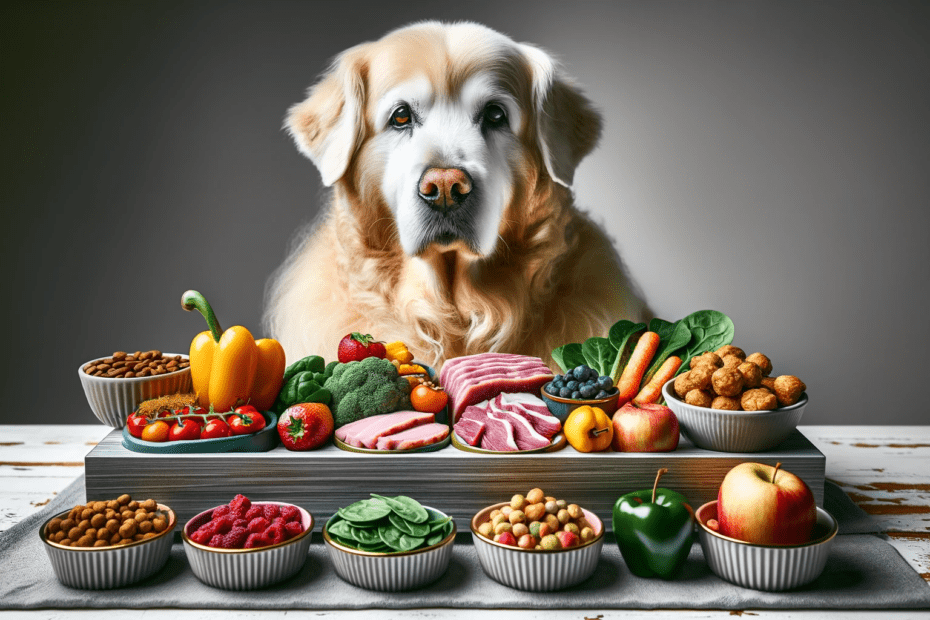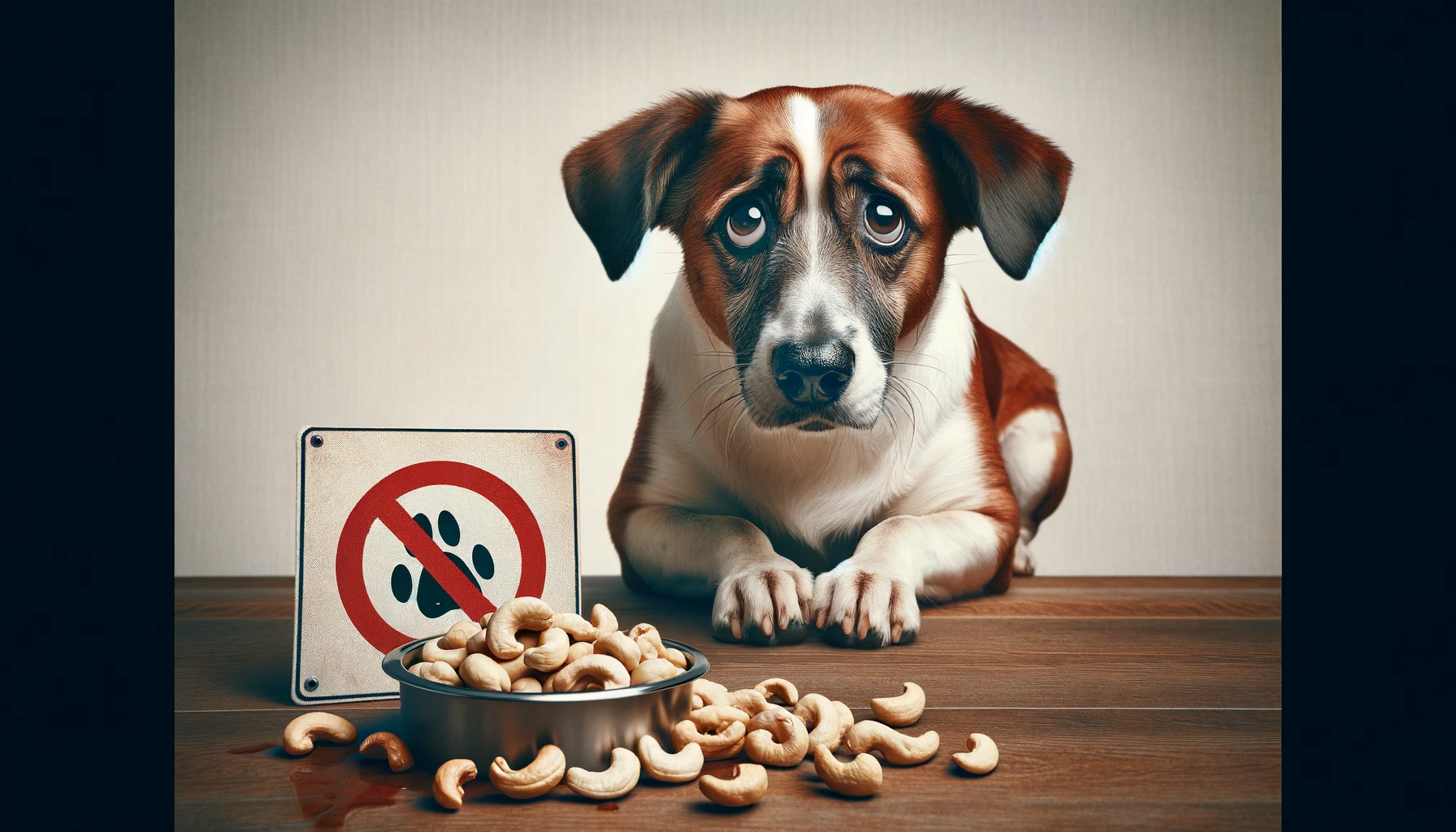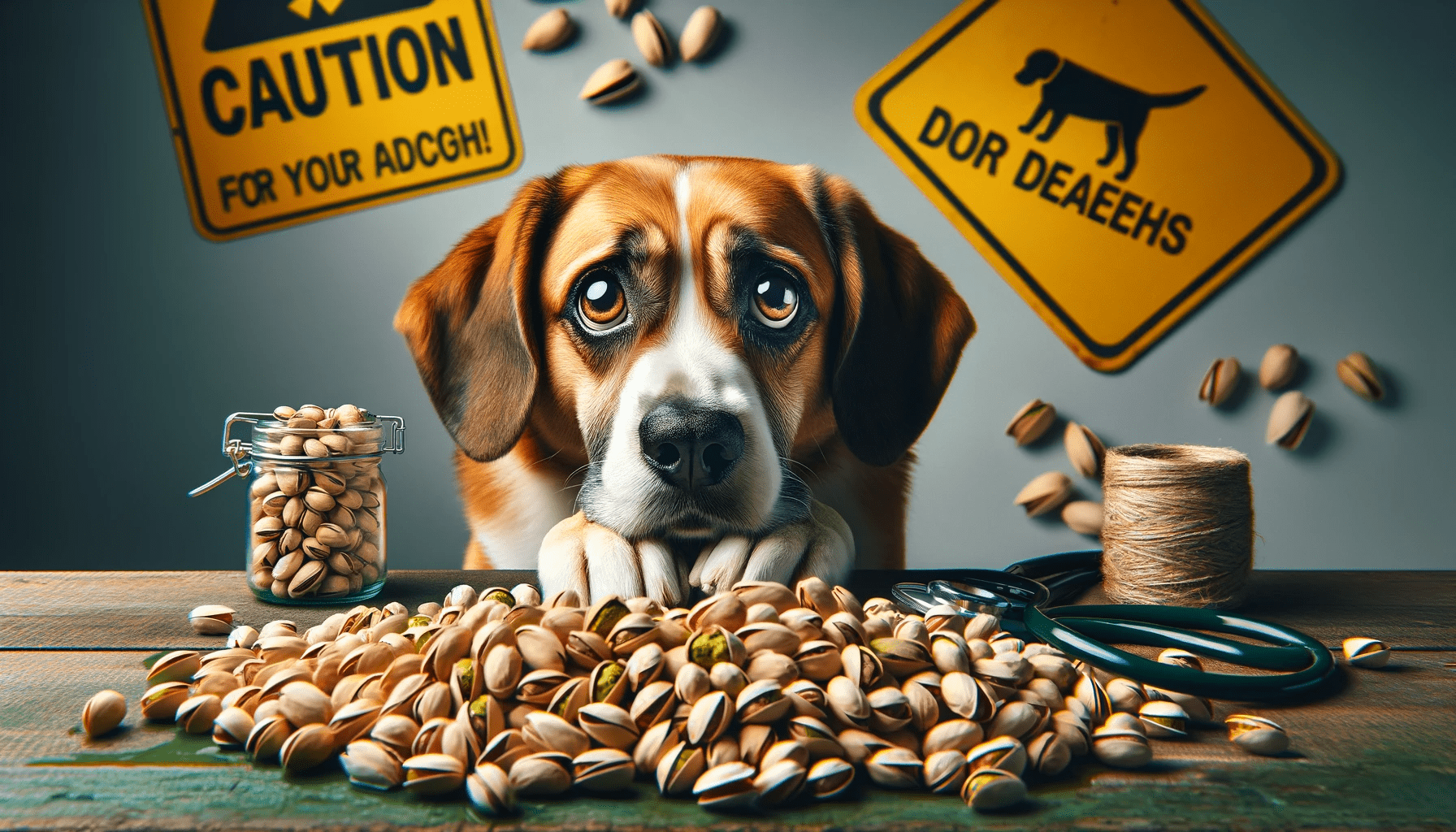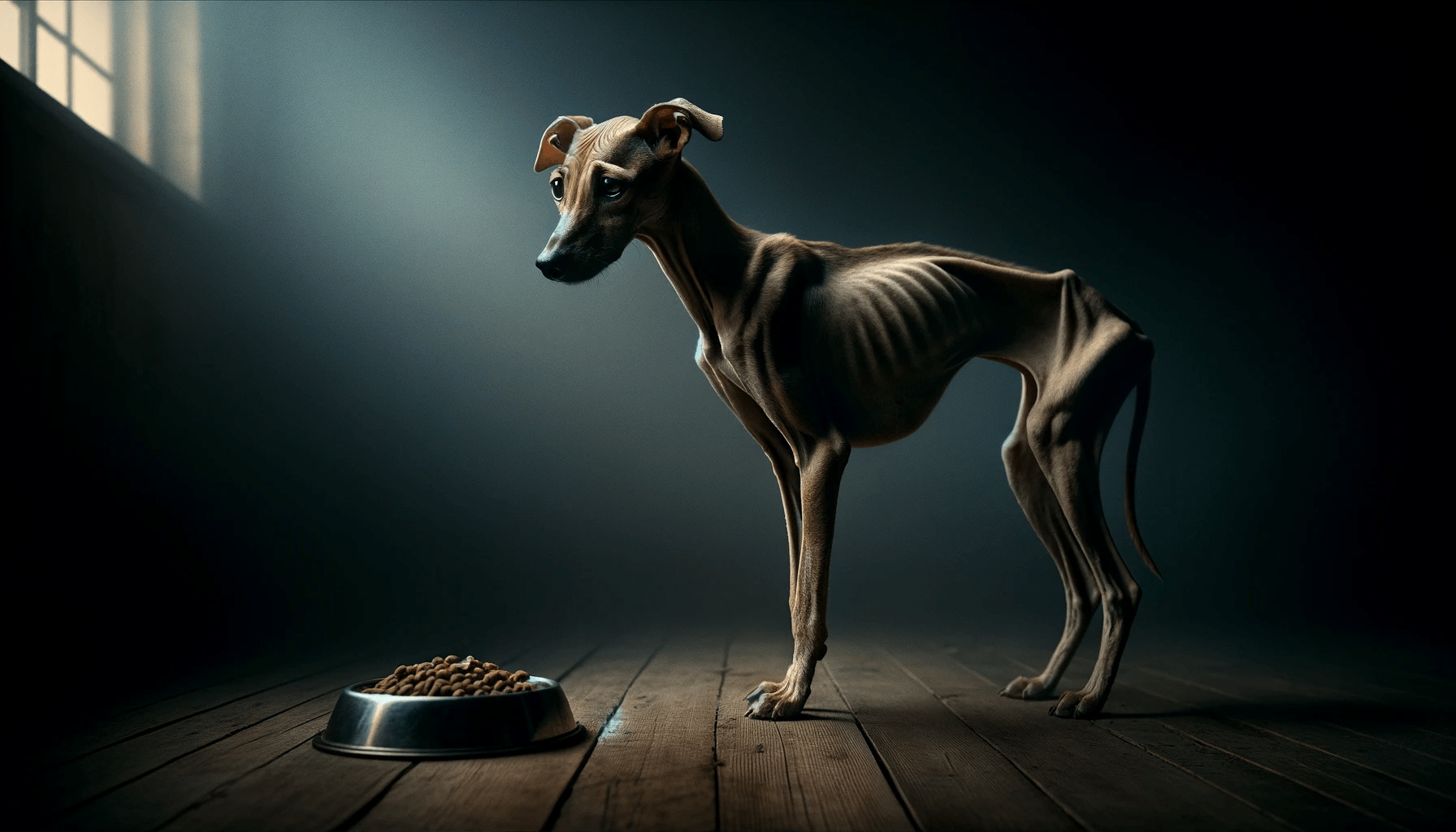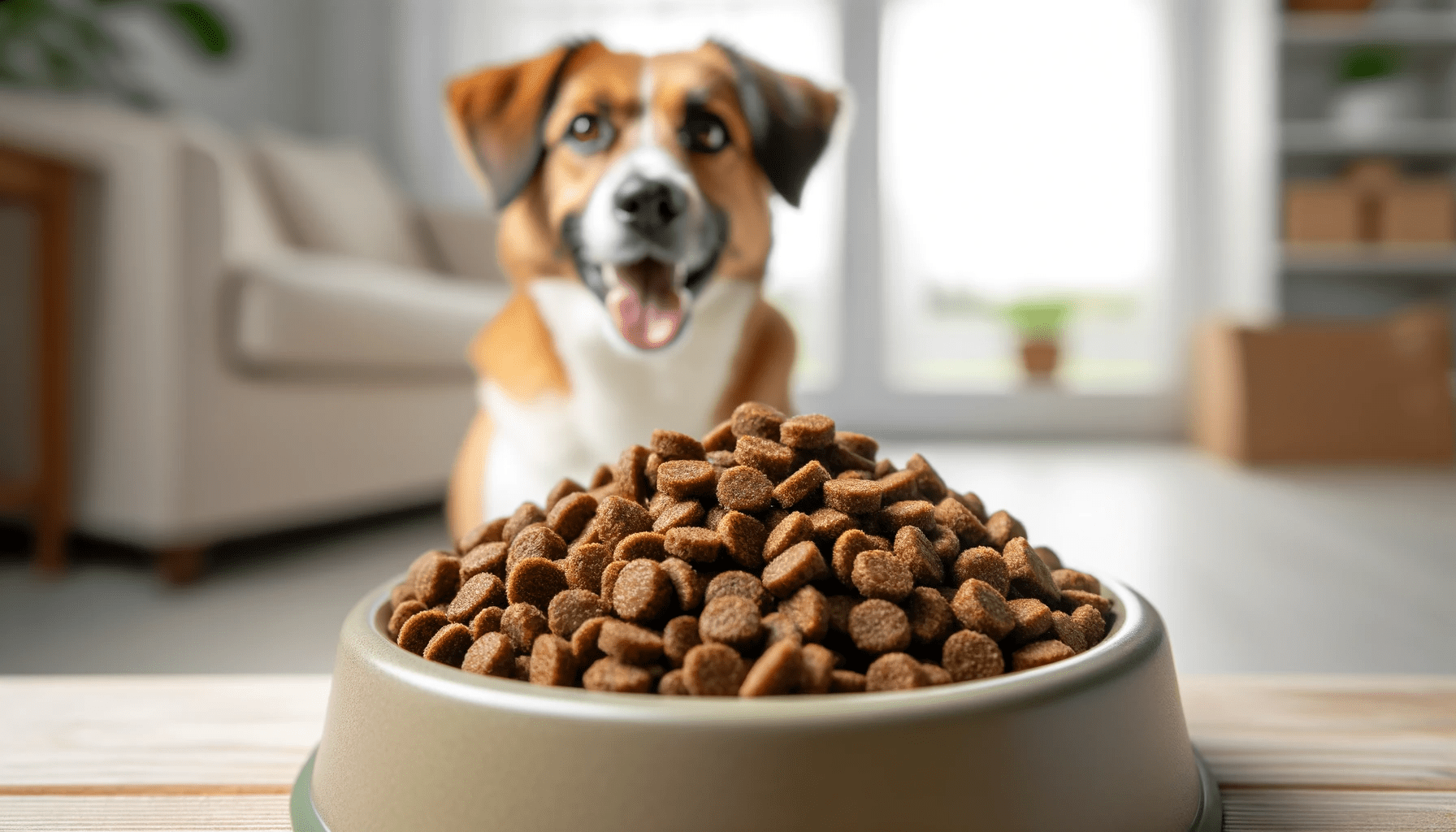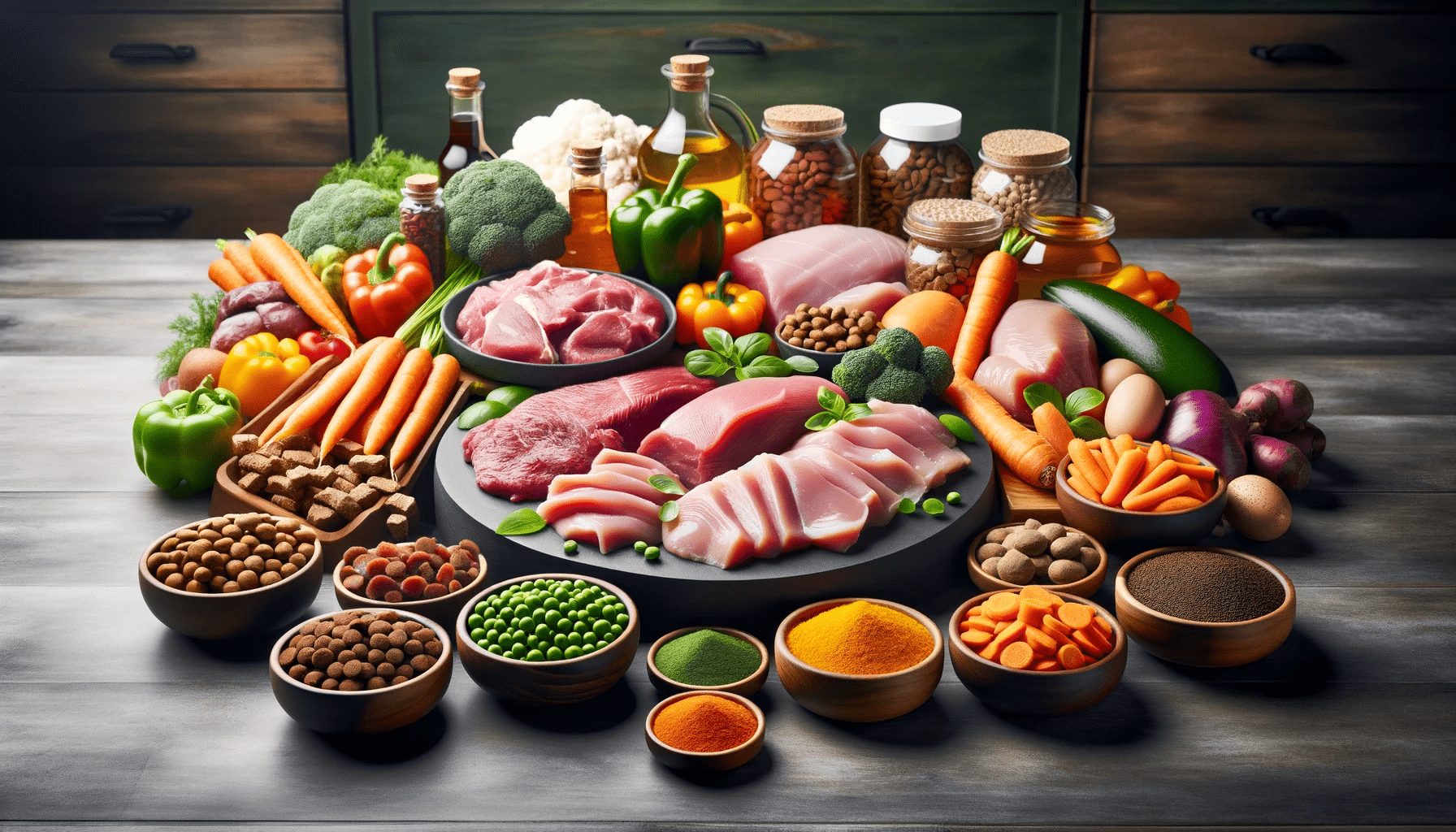Are you struggling to keep up with your senior dog's changing nutritional needs? Look no further!
In this essential senior dog nutrition guide, we'll explore the age-related changes that affect your furry friend's dietary requirements. From the vital nutrients they need for optimal health to specific considerations for senior dogs, we've got you covered.
Discover common nutritional challenges and gain expert tips on selecting and preparing meals tailored to your aging companion's needs.
Stay ahead of the trend and ensure your senior dog's well-being in 2023.
Key Takeaways
- Understanding the changing nutritional needs of senior dogs is crucial for maintaining their health.
- Hydration is important for senior dogs, and providing fresh water and wet food can increase water intake.
- Essential nutrients for optimal senior dog health include protein, omega-3 fatty acids, antioxidants, and fiber.
- Senior dogs require specific dietary considerations such as weight management and dental care for overall well-being.
Age-Related Changes in Senior Dogs' Nutritional Needs
As your senior dog ages, their nutritional needs will undergo age-related changes. It's important to understand these changes and provide them with the appropriate nutrition to maintain their health and well-being. Nutritional supplements for senior dogs can play a vital role in meeting their changing nutritional requirements.
One key aspect of senior dog nutrition is the importance of hydration. As dogs age, their body's water content decreases, making them more susceptible to dehydration. Adequate hydration is crucial for various bodily functions, including digestion, circulation, and temperature regulation. Providing fresh and clean water at all times is essential, and you may consider adding wet food or water additives to increase water intake.
In addition to hydration, senior dogs may benefit from nutritional supplements tailored to their specific needs. These supplements often contain ingredients such as glucosamine and chondroitin, which support joint health, omega-3 fatty acids for brain and heart health, and antioxidants to boost their immune system. However, it's important to consult with your veterinarian before adding any supplements to your senior dog's diet, as their individual needs may vary.
Meeting the nutritional needs of your aging dog is essential for their overall health and longevity. By understanding the importance of hydration and considering nutritional supplements, you can provide them with the support they need to age gracefully and enjoy a high quality of life.
Essential Nutrients for Optimal Senior Dog Health
To ensure optimal senior dog health, it's crucial to provide them with essential nutrients that support their aging bodies. As your furry companion enters their golden years, their nutritional needs change, and it becomes important to adjust their diet accordingly. Here are four essential nutrients that should be included in your senior dog's diet:
- Protein: As dogs age, their bodies require higher levels of protein to maintain muscle mass and support overall health. Look for high-quality sources of protein, such as lean meats or fish, in your dog's food.
- Omega-3 Fatty Acids: These essential fatty acids have been shown to support joint health, cognitive function, and a healthy coat and skin in senior dogs. Consider adding nutritional supplements, such as fish oil, to your dog's diet.
- Antioxidants: Antioxidants, like vitamins E and C, help combat the effects of aging and support the immune system. Look for dog foods that contain fruits and vegetables rich in these antioxidants.
- Fiber: Senior dogs often experience digestive issues, and including a moderate amount of fiber in their diet can help regulate their bowel movements and prevent constipation. Choose dog foods that contain natural sources of fiber, such as brown rice or sweet potatoes.
Senior Dog-Specific Dietary Considerations
Ensure your senior dog's dietary needs are met with these specific considerations. As your dog ages, there are certain dietary adjustments that need to be made to support their overall health and well-being. Two important factors to consider are their weight management and dental care.
Senior dog weight plays a significant role in their overall health. Just like humans, older dogs tend to have a slower metabolism and may be less active. This means they require fewer calories to maintain a healthy weight. It's crucial to monitor their weight and adjust their portion sizes accordingly. Obesity in senior dogs can lead to various health issues, such as joint problems and heart disease. On the other hand, underweight dogs may have weakened immune systems, decreased muscle mass, and poor coat condition. Consult with your veterinarian to determine the appropriate weight range for your senior dog and develop a tailored feeding plan.
Maintaining good dental health is essential for your senior dog's overall well-being. Dental problems are common in older dogs and can cause discomfort, pain, and difficulty eating. Regular dental care, including brushing their teeth and providing dental chews or toys, can help prevent the buildup of plaque and tartar, reduce the risk of gum disease, and maintain fresh breath. Additionally, there are dental diets available that are specifically formulated to promote dental health. These diets are designed to reduce plaque and tartar buildup, improve gum health, and prevent tooth decay. Regular dental check-ups with your veterinarian are also recommended to detect and address any dental issues early on.
Common Nutritional Challenges in Aging Dogs
Senior dogs face several common nutritional challenges as they age. These challenges can impact their overall health and well-being, making it crucial for pet owners to address them.
Here are the key nutritional challenges faced by aging dogs:
- Joint Health: As dogs age, their joints may become stiff and arthritic, causing discomfort and reduced mobility. It's important to provide them with a diet rich in omega-3 fatty acids, glucosamine, and chondroitin, which can help support joint health and reduce inflammation.
- Weight Management: Weight gain is a common issue in senior dogs, which can put additional strain on their joints and exacerbate existing health conditions. A balanced and portion-controlled diet is crucial to maintain a healthy weight. Consider feeding them a senior-specific formula that's lower in calories and fat.
- Digestive Health: Aging dogs may experience digestive issues such as decreased appetite, constipation, or diarrhea. Providing a diet that's easily digestible and high in fiber can help support their digestive system and prevent these issues.
- Nutrient Absorption: Older dogs may have a reduced ability to absorb nutrients from their food. It's important to provide them with a highly digestible diet that contains high-quality proteins, vitamins, and minerals to ensure they receive adequate nutrition.
Tips for Selecting and Preparing Senior Dog Meals
When selecting and preparing meals for your aging dog, it's important to consider their specific dietary needs and preferences. Choosing appropriate ingredients and practicing portion control are key factors in ensuring your senior dog receives the nutrition they need to stay healthy and maintain a good quality of life.
When it comes to choosing ingredients, opt for high-quality, easily digestible proteins such as chicken, turkey, or fish. These protein sources provide essential amino acids that help support muscle maintenance and repair. Additionally, include a variety of fruits and vegetables to provide vitamins, minerals, and antioxidants that can help boost your dog's immune system and overall health.
Portion control is crucial in managing your senior dog's weight and preventing obesity. As dogs age, their metabolism slows down, making it easier for them to gain weight. Consult with your veterinarian to determine the appropriate portion size for your dog based on their age, weight, and activity level.
To prepare your dog's meals, consider cooking the ingredients to enhance digestibility and palatability. Avoid using excessive amounts of salt, spices, or oils, as these can cause digestive upset. It's also important to introduce new ingredients gradually to prevent any adverse reactions.
Frequently Asked Questions
Can Senior Dogs Be Fed the Same Diet as Adult Dogs?
You should not feed senior dogs the same diet as adult dogs. They have different nutritional requirements and need a specialized feeding schedule to support their aging bodies.
How Often Should Senior Dogs Be Fed?
You should establish a feeding schedule for your senior dog that includes portion control. This helps maintain their weight and prevents overeating. Consult with your veterinarian to determine the best frequency and portion size for your dog's specific needs.
Are There Any Supplements Recommended for Senior Dogs?
Supplement recommendations for senior dogs include glucosamine for joint health and omega-3 fatty acids for brain function. These supplements can provide benefits such as improved mobility and cognitive function.
How Can I Manage My Senior Dog's Weight Through Diet?
To manage your senior dog's weight through diet, focus on portion control, feeding a balanced and nutritious diet, and incorporating regular exercise. Consult with your veterinarian to create a customized weight loss plan for your furry friend's senior dog weight loss journey.
Can Senior Dogs Have Treats, and if So, What Kind Is Recommended?
Yes, senior dogs can have treats. It is recommended to choose treats that are specifically made for senior dogs. These treats are often softer and easier to chew, and they may also contain ingredients that support joint health and cognitive function.
Conclusion
In conclusion, understanding the unique nutritional needs of senior dogs is crucial for maintaining their overall health and well-being. Age-related changes in metabolism and digestion require adjustments in their diet to ensure they receive adequate nutrients.
By providing essential nutrients tailored to their specific needs and considering common challenges associated with aging, pet owners can help promote optimal health in their senior dogs.
It's important to consult with a veterinarian to develop a specialized dietary plan that meets the individual needs of each aging dog.
